
Advertise on podcast: PBS NewsHour - Science
Rating
4.6 from
Categories
Country
This podcast has
25 episodes
Language
Publisher
Explicit
No
Date created
2017/10/30
Average duration
6 min.
Release period
8 days
Description
Listen to PBS NewsHour science reporting published every Wednesday by 9 p.m. Featuring reports from Miles O'Brien, Nsikan Akpan and the rest of our science crew, we take on topics ranging from the future of 3-D printing to power of placebo drugs. Is this not what you're looking for? Don't miss our other podcasts for our full shows, individual segments, Brooks and Capehart, Brief but Spectacular, Politics Monday and more. Find them in iTunes or in your favorite podcasting app. PBS NewsHour is supported by - https://www.pbs.org/newshour/about/funders
Social media
Check PBS NewsHour - Science social media presence
Podcast episodes
Check latest episodes from PBS NewsHour - Science podcast
A mind-boggling look at what might be the brightest object in the universe
2024/02/25
According to a paper published this past week in the journal Nature Astronomy, scientists found what could be the brightest known object in the universe: a quasar produced by a massive and voracious black hole. It's estimated to be emitting light that's 500 trillion times more intense than Earth's sun. John Yang has more. PBS NewsHour is supported by - https://www.pbs.org/newshour/about/funders
more
The potentially dangerous implications of an AI tool creating extremely realistic video
2024/02/21
The realism of AI-generated video is one of the more remarkable, and potentially scary, developments we've seen so far with the technology. Oren Etzioni studies artificial intelligence and is the founder of truemedia.org, an organization that fights against AI-based disinformation. Etzioni joined William Brangham to discuss the future of AI. PBS NewsHour is supported by - https://www.pbs.org/newshour/about/funders
more
How a new space race could be harming the Earth's atmosphere
2024/02/17
According to data from the United Nations Office for Outer Space Affairs, 2023 was a record year for launching satellites, probes, landers and more into space. But scientists worry those plumes of exhaust trailing behind rockets could be scattering harmful pollutants into the pristine upper layers of the atmosphere. John Yang speaks with freelance science journalist Shannon Hall to learn more. PBS NewsHour is supported by - https://www.pbs.org/newshour/about/funders
more
Conservationists take drastic measures to save coral reefs from climate change
2024/02/03
Coral reef ecosystems support a quarter of all marine life on Earth, but they are slowly dying under the relentless stresses of overfishing, pollution, disease and climate change. As part of our ongoing series "Saving Species," William Brangham dives into the steps that scientists are taking to try to preserve the corals that remain. PBS NewsHour is supported by - https://www.pbs.org/newshour/about/funders
more
14-year-old scientist Heman Bekele on his quest to fight skin cancer with soap
2024/01/27
Heman Bekele spent the last year developing a bar of soap that could treat skin cancer. It was the winning entry at the annual 3M Young Scientist Challenge, considered one of the top science and engineering competitions for fifth through eighth graders. For our Weekend Spotlight, John Yang speaks with Bekele about his work. PBS NewsHour is supported by - https://www.pbs.org/newshour/about/funders
more
News Wrap: Former Trump adviser Peter Navarro sentenced to prison for contempt of Congress
2024/01/25
In our news wrap Thursday, former Trump adviser Peter Navarro was sentenced to four months in federal prison for contempt of Congress, the U.S. economy is showing more signs of surprising resilience thanks to robust consumer spending and the Hamas-run health ministry reported an Israeli strike killed 20 people waiting for food in Gaza. PBS NewsHour is supported by - https://www.pbs.org/newshour/about/funders
more
Montanans fish for answers to mysterious decline in trout population
2024/01/20
The number of brown and rainbow trout in some of Montana's best-known and most scenic fishing rivers is at historic lows. With experts at a loss to explain it, state agencies, fishermen, businesses and concerned citizens are all trying to find answers. Montana PBS's Joe Lesar reports. PBS NewsHour is supported by - https://www.pbs.org/newshour/about/funders
more
Why you may be eating and drinking more microplastics than you thought
2024/01/13
From takeout containers to water bottles, plastic seems unavoidable in our daily lives. Now, two new studies have found that we're eating and drinking more plastic than we might have realized. George Leonard, a co-author of one of the studies and chief scientist at Ocean Conservancy, joins John Yang to discuss the findings. PBS NewsHour is supported by - https://www.pbs.org/newshour/about/funders
more
News Wrap: Blinken visits Qatar in diplomatic effort to contain Israel-Hamas war
2024/01/07
In our news wrap Sunday, Secretary of State Blinken continued his urgent mission to the Middle East as the Israel-Hamas war enters its fourth month, Defense Secretary Austin took responsibility for delays in disclosing his hospitalization, major winter storms dropped snow in the Northeast and the West, and a rocket launch Monday aims to land the first U.S. craft on the moon in more than 50 years. PBS NewsHour is supported by - https://www.pbs.org/newshour/about/funders
more
How the black-footed ferret is making a comeback from the brink of extinction
2023/12/10
When President Nixon signed the Endangered Species Act into law 50 years ago, one of the first on the endangered list was the black-footed ferret, North America's rarest animal. Once thought to be extinct, they are making their way back thanks to the work of dedicated conservationists. John Yang reports on some of that work for our ongoing series, "Saving Species." PBS NewsHour is supported by - https://www.pbs.org/newshour/about/funders
more
How studying arctic ground squirrels can help advance human brain health
2023/12/03
When arctic ground squirrels hibernate for the winter, they can lower their body temperatures to freezing levels and stay dormant for up to eight months. Researchers at the University of Alaska Fairbanks are studying how these animals survive on the edge of life and the clues they may hold to treating injuries and disease in humans. Alaska Public Media's Kavitha George reports. PBS NewsHour is supported by - https://www.pbs.org/newshour/about/funders
more
News Wrap: U.S. at COP28 commits to tripling renewable energy production by 2030
2023/12/02
In our news wrap Saturday, Vice President Harris pledged $3 billion at COP28 to a global fund to help poorer nations adapt to climate change, a protestor is in critical condition after setting themself on fire outside the Israeli consulate in Atlanta, and record amounts of snow has dropped on much of Germany, Austria, the Czech Republic and Switzerland. PBS NewsHour is supported by - https://www.pbs.org/newshour/about/funders
more
Podcast sponsorship advertising
Start advertising on PBS NewsHour - Science & sponsor relevant audience podcasts
You may also like these science Podcasts

4.9
28
82
Chemistry Made Simple
Matthew Macariou
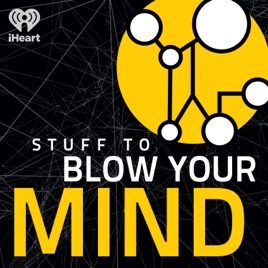
4.3
5435
2000
Stuff To Blow Your Mind
iHeartPodcasts
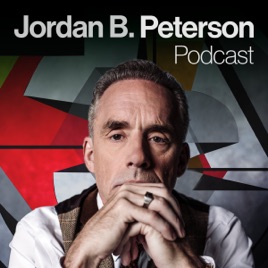
4.7
30373
426
The Jordan B. Peterson Podcast
Dr. Jordan B. Peterson
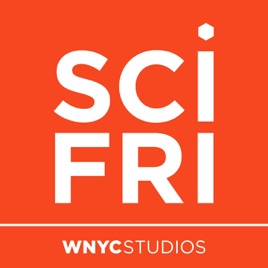
4.3
5067
150
Science Friday
Science Friday and WNYC Studios
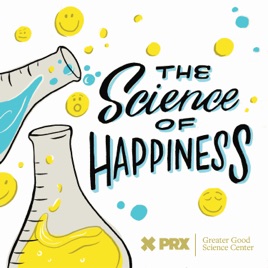
4.5
1733
213
The Science of Happiness
PRX and Greater Good Science Center

4.9
107
84
Materialism: A Materials Science Podcast
Taylor Sparks and Andrew Falkowski

4.7
94
50
Casual Inference
Lucy D'Agostino McGowan and Ellie Murray
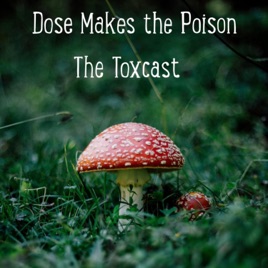
4.8
67
22
Dose Makes The Poison: The Toxcast
Kevin G. Shanks

4.8
8217
597
Sasquatch Chronicles
Sasquatch Chronicles - Bigfoot Encounters
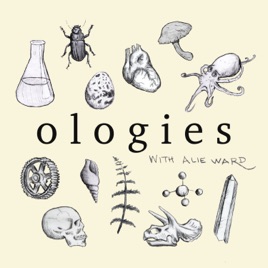
4.9
21221
379
Ologies with Alie Ward
Alie Ward



